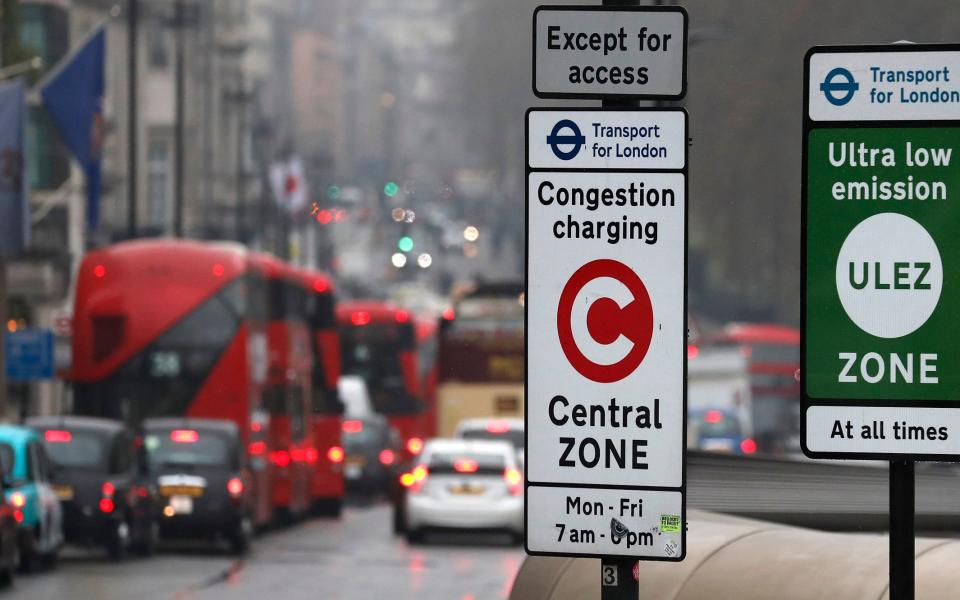Roll out congestion charges nationwide, bus operators tell ministers

Congestion charge zones urgently need to be widely implemented in towns and cities to meet climate change goals, ministers have been told.
A £7 daily charge, imposed on motorists across parts of the country, is being proposed by bus operators.
It is one of a radical package of “carrot and stick” measures to make buses more attractive proposed in a report that was shared by bus industry bosses with the Government last week.
Failure to implement the reforms will mean falling significantly short of zero-emission targets, the analysis claimed.
Britain's first congestion charge was introduced in Durham in 2002 to the city's 1,000-year-old crumbling roads. London introduced its congestion charge a year later. Since then a handful of other cities have introduced “clean air” or “low emission” zones such as Bath, Bristol and Portsmouth. These schemes target cars that fail to meet minimum emissions standards rather than all vehicles, however.
Cambridge, meanwhile, has broken the mould by pushing ahead with a proposed £5 congestion charge on drivers. Council leaders are consulting on the scheme called the Sustainable Travel Zone ahead of it being introduced in 2027/28.
Boris Johnson, a long-time advocate of greater bus use, promised a “bus revolution” by pledging billions of pounds for zero-emission vehicles and the building of infrastructure such as bus lanes to make using them more attractive.
But the former prime minister’s flagship public transport policy, announced more than 18 months ago, is yet to reach 31 of 79 Local Transport Authorities.
It means 24 million Britons are waiting to realise the benefits from £3bn of investment that was set aside to avoid a car-led recovery from the pandemic, according to WPI Economics, which prepared the report on behalf of the bus industry.
The report, seen by The Telegraph, concludes that current policy will increase uptake of buses among passengers by 10pc by 2050. To meet the UK’s climate change goals, bus use must rise by 79pc, according to the analysis. It means that radical interventions are needed to fill the 69pc gap.
Discouraging the use of cars is one of three interventions needed to meet climate change goals. Some 75pc of local traffic would be hit by a congestion charge under the analysis’s “high scenario”, raising an estimated £17bn-a-year that can be invested in “increasing the attractiveness of the bus network”.
Other policies include a “bus bonus”, a salary-sacrifice scheme where employers can purchase a voucher that can be used by staff to buy travelcards or credit up to the value of £800-a-year. Meanwhile, a £2 cap on bus fares in the long-term is also proposed.
The findings were presented to officials from the Department for Levelling Up and the Department for Transport last Wednesday.
WPI Economics and Confederation of Passenger Transport, which commissioned the report, stressed that additional congestion charge zones would only be brought in once bus services had been increased so that motorists had a bona fide public transport alternative.
Matthew Oakley, a research director WPI Economics said: “An urgent range of sensible interventions will make buses and coaches the natural choice over cars.
“Without a significant step change to government policy, current decarbonisation targets will not be met.”
Alison Edwards, Director of Policy at the Confederation of Passenger Transport which commissioned the report said bus and coach travel must “become people’s preferred transport of choice” to meet climate change goals.
She added: “UK decision-makers should not park bus policy packages, but see them as fair and achievable measures to slash carbon, generate new tax revenue, create more jobs and make people healthier.”

 Yahoo Finance
Yahoo Finance 